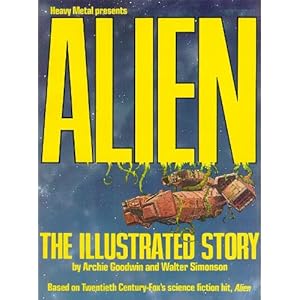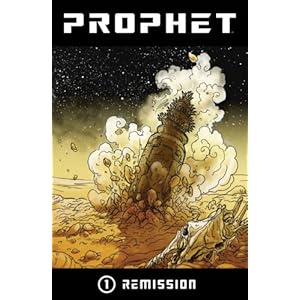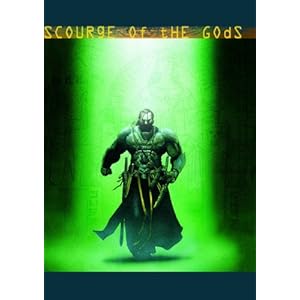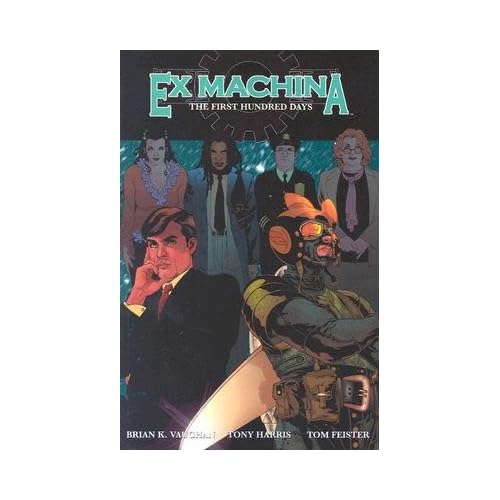
Review by Alex Crawford
I have yet to read anything by Palahniuk that I haven't liked, but Rant nearly tops the list. It's extremely difficult to talk about the actual story without spoiling anything, but to summarize, it's the biography, told as an oral history, of a man responsible for making humans the primary mammalian carriers of rabies. In the process of telling the story Palahniuk also practices some superb world-building, and, in his own fashion, journeys off into some profound wonkiness. I highly recommend you grok this book.
Review by David Czuba
Bukowski is at his best in the book that made him famous, in an occupation, postman, that chewed him up and spit him out. Whether he writes of driving the postal jeep like a madman in the rain, or of women wearing loose robes as they're handed the mail at the stoop, Bukowski summons the wit god and calls 'never mind' through the screen door when it arrives. Candor is always Bukowski's card, even when he'd rather lie and get it over with, a sly devil who gets the crap kicked out of him by the system. As an aside, my girlfriend met and held poetry readings attended by Buk, and edited and published a primer of stories about the writer entitled "All's Normal Here". The library should have it, but it's rare and expensive. At any rate, Bukowski inspires a generation of slackers to keep at it, and write poetry while they're at it, because it's a better occupation than the one they got to do for money. To inform yourself more, rent the documentary film on Bukowski, "Born Into This" if you can't find "All's Normal Here". No, it isn't, and never was.

Review by David Czuba
A good short read for teens in the vein of Harry Potter, following the treasure-hunt theme of so many stories, such as Edgar Allen Poe's "The Gold Bug", but with a spiritual slant. The central character journeys to find his heart's desire in a pseudo-New Age/mystic/Creator world between Iberia and North Africa. Remember, this story was written before the Arab Spring, so it has an altruistic air. The story is somewhat repetitive, but it could be the Costco edition translation I read, since the original is in the South American author's language.

Review by David Czuba
If society values a predictable future to reduce uncertainty, then cradle-to-cradle thinking must pervade human enterprise. As scientist Nils Barricelli speculated in the late 50s, when intelligent beings run out of finite resources, we stagnate and lose our ability to evolve quickly when environmental change occurs. We must start designing our products like nature does: not with obsolescence built-in, but with a continual fresh start in mind at the end-of-life-cycle. As chemist and designer Braungart and McDonough met and gathered clients like Herman-Miller, they unfolded a philosophy like that mentioned. Even the book itself is designed to be upcycled as quality material for another book. What if structures were all designed this way? What if water runoff were filtered before reaching the ocean? The authors hope to inculcate the importance of this kind of thinking. For the next step, the book "Fostering Sustainable Behavior" by Doug McKenzie-Mohr and William Smith offer thoughts on actually changing our building and consuming instincts. Although I have yet to read that book, it suggests the logical next step from Cradle-to-Cradle.

Review by David Czuba
Though occasionally a tough read, Dawkins approaches supernatural existence with the no-nonsense of hard arguments. As a trained scientist, he explains his Athiestic viewpoint, often using animal behavior as an example. His conclusion, you're better off knowing than believing, better off with an attitude of doubt rather than with certainty. That said, his thesis seems likely to turn off someone currently engaged in faith who might be interested in non-belief. Dawkins's other works are equally dense and adamant.

Review by David Czuba
This graphic animated book is drawing attention 30 years after its publication (Find commentary on the Web at http://www.ign.com/articles/2012/10/09/alien-the-illustrated-story-review)
For those of you enamored with H.R.Giger's artwork and sculpture, the graphic book veers somewhat from his vision, while peppering some of Giger's style here and there. The authors stay true to the film script, and make a tight storyline that flows extremely well, especially where they build suspense to reveal the surprise on the next pages. You know the story, but it's magnetic anyway, and all the more relevant as Ridley Scott's 2012 prequel film "Prometheus" suggests an alteration of the story in ways you hadn't guessed.

Review by Alex Crawford
This is one of those delightful little sci-fi worlds where the aliens are outlandish without regard being given as to how nature might have formed such a creature. In addition to that, I was somewhat ecstatic when I noticed the author using Esperanto as a language to differentiate the two warring species. While not much is done to render itself as standing outside the star-crossed lovers story, the setting is unique enough in its own flavor that one would have a hard time being bothered by all of the archetypical writing in the story. Personally, I'd prefer a well-written story from an old style than something grasping so hard for originality that it starves itself of any real creativity. I won't even rave about the quality of the art, or harp on the laurels of the authors, as there are others better suited to the tasks. Let it suffice for me to say: "You should read this."

Review by Alex Crawford
This volume chronicles the Buddha's life as a prince up until his renunciation of his title. I found this volume much more enjoyable than its predecessor, as Tezuka's new characters cease to get in the way of the actual narrative, and instead feel like they are contributing to the traditional legends. Tezuka's quirky, anachronistic jokes continue to flood the pages of this manga, but again, because the story has actually picked up in this volume, they don't feel so overbearing as they did before. I've heard others say that after two or three volumes, they still didn't get into this manga, but I feel that if you can slog through the first one it should be able to sink its fans into you.

Review by Alex Crawford
For the first volume of a series by Tezuka, I expected a lot better. The art is wonderful, of course, but very little relating to the titular character actually occurs in this volume. We have the birth of the Buddha, and that's about it. The bulk of this volume is instead focused on original characters, who are supposed to be woven in-and-out of the traditional stories and legends of the Buddha, giving this work its uniquity. While some of the stories and characters were interesting, I really liked General Budai and Chapra, the slave, other characters were so grating that I found myself just wishing them out of the story. (I'm looking at you, Chapra's mother and Tatta) All in all, I've read much worse manga, but considering the calibre of the author, I'm a bit disappointed. I will say, though, that the ending to this volume leaves one expecting the story to pick up in the next volume.

Review by Alex Crawford
Directly continuing the events of Mouse Gard: Fall 1152, Winter finds the Guard struggling to find supplies for the season and strengthen the bonds of the mouse cities after the quelling of Midnight's rebellion. To say that the events of the season are exciting would be an understatement. If, after reading this book, you aren't hooked on the Mouse Guard series, you should probably go read about sparkly vampires.

Review by Alex Crawford
Looking at Mouse Guard, one's initial thought may be: "Oh hey, a Redwall rehash." However, one would be incorrect in this assessment. Mouse Guard is set in a world where the only civilized species are mice and weasels, and is the story of the Mouse Guard, protectors of the mouse territories. Fall 1152 is the story of one patrol sent out to find a missing grain peddler. In the course of their mission, they embark on a path that rocks the Guard to its very core.

Review by Ryan Schafer
oh my god.
I haven't read this book but someone used my account to post "it's like this crazy nightmare planet of the apes dream world of destiny and power and holy shit. ahhhh! read this book." so now I guess I have to read it.

Review by David Zhang
I highly recommend the Anastasia (Ringing Cedar) series. They are the Carlos Casteneda books of our generation.

Review by David Zhang
This book totally blew my mind in high school. A great tool for people who want to fine tune their experience of reality.
Review by Alex Crawford
Continuing the events of the first volume by means of escalation, the battles between Space Huns and Space Romans cease to be sufficient scope for the sake of this narrative. We wind up with rebellious gods and a climax of titanic proportions.

Review by Alex Crawford
Space Huns and Space Romans, oh my! The story centers on analogues of Flavius Aetius and Attila the Hun, who do battle for control of a stagnant, galaxy-sprawling Roman Orbis. Throughout the story, questions of divinity are frequently tendered, ending on a cliff-hanger that refuses any possibility but to immediately read the second volume.

Review by Alex Crawford
A wonderful introduction to the Tao Te Ching. I picked this up and read it out of idle curiosity and a desire for some humor (of which this book has plenty), however, in mirroring the Tao Te Ching this book retains a surprising amount of insight. Some may wish to write off most of the content as being cliché and faux-philosophical, but it's my feeling that it presents the feline perspective well enough to make the claim that it's a translation of a cat's work seem plausible. In addition to that, it makes one want to read the work that this book is based upon. (or coincidentally mirrors, take your pick)

Review by Ben Owens
For anyone who enjoyed Y: The Last Man or The Escapist, Ex Machina is Brian K. Vaughan taking his talent to an entirely new level. One, because it's his first self-published comic, he has no restrictions to what he can do in the story, and two, he got Tony Harris to draw every last panel in the beautifully realistic style he used for the covers of Starman. It's a brilliant and unique combination of real-world post-9/11 politics and Watchmen-esque superhero politics that builds and twists in so many unexpected ways it will change your perspective of so-called "super heroes" forever. I'd write this rave of a review for every volume if I didn't think it'd be tedious, but let me just say, though every volume is fantastic, volume 5 (Smoke Smoke) and volume 10 (Term Limits) stand out as exceptional.

Review by Future Man
Part philosophy of imagination and the creative process, part creative writing guide and imagination games! Lynda Barry's sweet and cooky scrapbook style comic art will pry the creativity out of you, whether you like it or not.

Review by Future Man
I always thought Captain America was a total tool, but reading this book catapulted Captain America to one of my favorite Marvel characters. I actually read this when it was first coming out in comic form and it was one of the most fun and absorbing reading experiences I've had. Still probably my favorite Marvel Comics story. I couldn't say how this book reads on its own, aside from the other crossover issues, but we also have what I'd consider the most important other books in the series.
I would actually recommend starting with the 'Road to Civil War' book, at least for the Spider-Man story leading up to this.